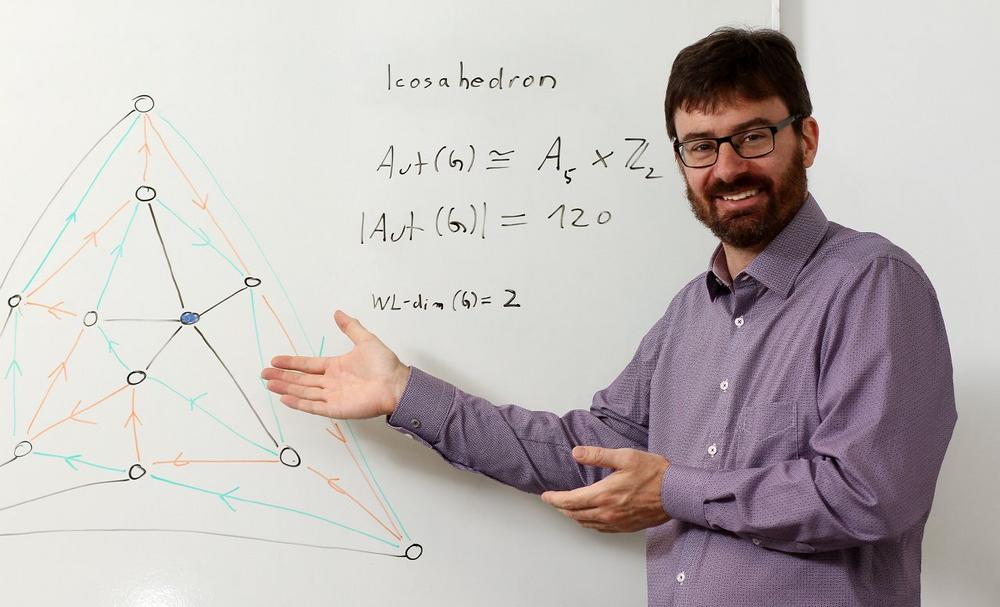Being able to detect symmetry in large and complex data systems is becoming increasingly important in modern computing. ‘Symmetries are absolutely everywhere’, says Schweitzer, who researches algorithms and complexity at the Technische Universität Kaiserslautern. ‘Whether you’re looking at mathematical equations, logic formulas, geometries, graphs, even road maps or the way social networks evolve, certain repeating patterns occur which can be identified and used to make computation more efficient.’ In fact, symmetry detection can be used to avoid duplication and identify similarities and patterns in very complex systems such as neural networks used in machine learning, or in large databases such as those listing chemical molecules.
Schweitzer deals with these phenomena in his research and develops theoretical models for this purpose. The European Union is now funding his project ‘EngageS: Next Generation Algorithms for Grabbing and Exploiting Symmetries’ with an ERC Grant – one of the most prestigious research awards in Europe.
Over the next five years, the computer scientist wants to develop a theoretical model to explore the limits of algorithms that detect symmetries in databases, software, neural networks and the like. Schweitzer explains that for complex arithmetic operations or large amounts of data, symmetries are not immediately apparent to users. ‘They can take on forms or facets that are extremely difficult to detect,’ he says. ‘But if we develop fast algorithms for detecting and exploiting these patterns, this will drastically improve computation times in the future.’
In addition to a theoretical model, the computer scientist wants to develop software that should be freely available online. ‘Users will be able to use up-to-date software to detect and evaluate symmetries,’ says the professor.
Schweitzer anticipates close cooperation with Kaiserslautern mathematics professors Dr. Gunter Malle and Dr. Wolfram Decker from the Collaborative Research Center (SFB) ‘Symbolic Tools in Mathematics and their Application’. He says there are important linkages between symmetry detection and group theory that can help advance the respective research areas.
TU Technische Universität Kaiserslautern
Gottlieb-Daimler-Straße 47
67663 Kaiserslautern
Telefon: +49 (631) 205-2049
Telefax: +49 (631) 205-3658
http://www.uni-kl.de
Telefon: +49 (631) 205-2509
E-Mail: schweitzer@cs.uni-kl.de
